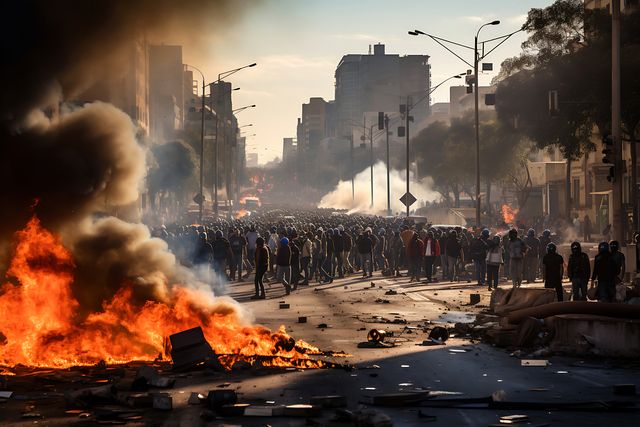Fact-finding mission reports severe rights violations following Mahsa Amini protests
The United Nations has delivered a stark verdict on Iran’s handling of the protests ignited by Mahsa Amini’s death in September 2022, labelling the government’s actions as crimes against humanity. A comprehensive investigation by a UN fact-finding mission revealed a series of grave violations, including murder, torture, rape, and other forms of sexual violence, which were systematically directed against civilians demanding freedom, equality, dignity, and accountability.
Mahsa Amini, a 22-year-old Iranian Kurd, was detained for allegedly breaching Iran’s stringent dress code for women, a move that catalyzed nationwide protests. These demonstrations quickly escalated into a broad challenge against the Islamic Republic’s governance under Ayatollah Ali Khamenei. In response to the escalating situation, the UN Human Rights Council established a high-level investigative body in November 2022 to probe the deadly suppression of these protests.
The mission’s findings highlight a pervasive and systematic attack against civilians, particularly women, girls, boys, and men who participated in peaceful protests. According to Sara Hossain, chair of the mission, these actions not only represent serious human rights violations but also crimes under international law, with specific emphasis on gender-based persecution.
The Iranian government’s response to Amini’s death and the subsequent protests was marked by obfuscation and denial, further exacerbating the situation. The UN mission documented instances of disproportionate force used by Iranian security forces, leading to unlawful killings and injuries. Moreover, the report sheds light on the arbitrary execution of at least nine young men and identifies hundreds more at risk of execution or death sentences in relation to the protests.
The mission estimates that up to 551 protesters, including at least 49 women and 68 children, lost their lives due to security force actions, most of whom were victims of firearm use. This repression is deeply rooted in systemic discrimination against women and girls, serving as both a catalyst and facilitator of the observed human rights abuses.
In light of these findings, the UN mission calls on the Iranian authorities to cease all executions, release all individuals arbitrarily detained in connection to the protests, and dismantle the enforcement mechanisms of discriminatory laws, particularly those mandating the hijab. Furthermore, it emphasizes the need for justice, truth, and reparations for the victims of these violations and encourages international legal accountability due to the lack of effective remedies within Iran.
Despite the Iranian government’s refusal to cooperate with the investigation, the report, set to be presented to the Human Rights Council on March 15, adds significant international pressure on Tehran. This comes amid growing concerns over Iran’s nuclear advancements, its support for Russia in the Ukraine conflict, and the ongoing harassment and imprisonment of activists.
